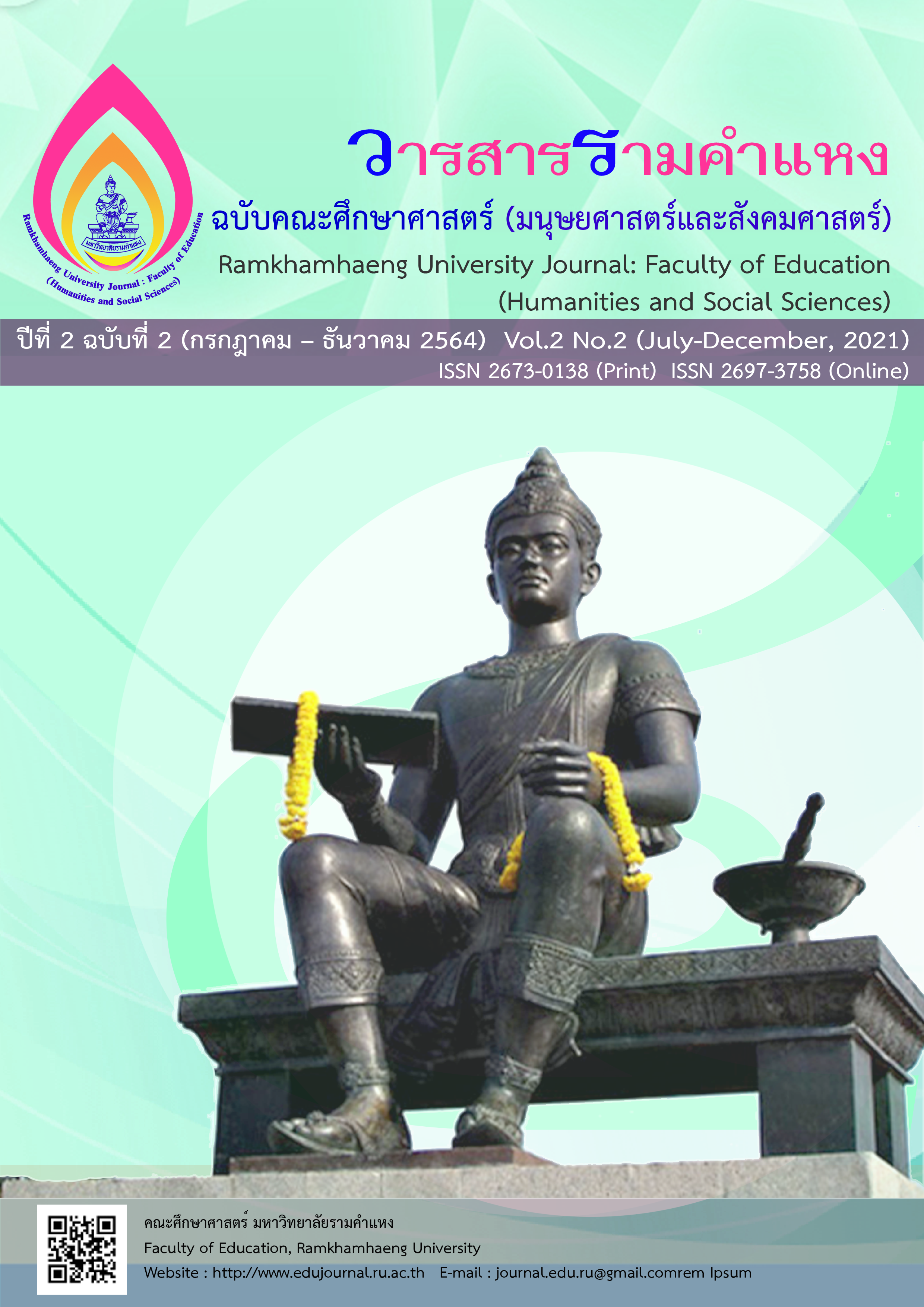Sexual Stigma Among Transgender Students in Thai Textbooks
Main Article Content
Abstract
This article is part of a dissertation study of the sexual stigma that occurs with transgender students in Chiang Mai, it is a qualitative study. The purpose of the research is to study the gender stigma situation of transgender students in schools and to understand the nature of sexual stigma in schools, as well as to know the challenges and consequences of transgender students, faced with being stigmatized. The samples used in the study were transgender students, currently studying in senior high school grade 10-12, semesters 1-2 of the academic year 2018, a school in Chiang Mai, consisting of 15 people, divided into 3 groups of transgendered students each year to study according to research objectives and 2 male/female students of each year to study the attitude towards transgender students. Researchers use observations and interviews as the main way to collect data, to analyze the data to manage all of the information acquired above from the documents, interviews, and observation. The researchers opted for an Excel ready-made program because it has the features to help manage and integrate different types of data. The researcher's retrieved data from documents removed interview tapes and compiled data from observations. All data is published in the program so that the information is organized into a collective mindset and identified by the distinguished category. The findings are made in this article, it is a reflection of gender bias towards transgender people, which is a lesson used in some teaching subjects to continue to present sexually harassing and harassing content of transgender students. This is a new kind of social problem that Thailand has never said before. The content shown in such classes is considered to be a significant bias for transgender students.
Downloads
Article Details

This work is licensed under a Creative Commons Attribution-NonCommercial-NoDerivatives 4.0 International License.
ผู้ส่งบทความ (และคณะผู้วิจัยทุกคน) ตระหนักและปฎิบัติตามจริยธรรมการวิจัยอย่างเคร่งครัด ทั้งนี้บทความ เนื้อหา ข้อมูล ข้อความ ภาพ ตาราง แผนภาพ แผนผัง หรือข้อคิดเห็นใดๆ ที่ปรากฎในบทความ เป็นความคิดเห็นและความรับผิดชอบของผู้ส่งบทความ กองบรรณาธิการไม่จำเป็นต้องเห็นตามเสมอไป และไม่มีส่วนรับผิดชอบใดๆ โดยถือเป็นความรับผิดของของเจ้าของบทความเพียงผู้เดียว
References
BangkokBusiness. (2013). Social issues educational article. Retrieved May 11, 2017, from http://www.bangkokbiznews.com
Crocker, J., Major, B., & Steele, C. (1998). Social stigma. In D. T. Gilbert, S. T. Fiske, & G. Lindzey (Eds.), The Handbook of Social Psychology (4th ed., Vol. 2, pp. 504-553). Boston: McGraw-Hill.
Feagin's, J. (1963). Erving Stigma: Note on the management of spoiled Identity. Harmondsworth: Penguins Book.
Guadamu, T. (2013). Don't "bullied" me. Bangkok: Bangkok Media Business Company Limited.
Learning Community of Gender Education. (2014). Mainstreaming gender equality in community learning centres. Bangkok: UNESCO Bangkok Office Asia and Pacific Regional Bureau for Education
Mahidol University. (2013). Achieve gender equality and empower all women and girls. Institute of Molecular Biosciences, Mahidol University.
Nantapanit, S. (2009). 6 Years gender and development research institute/text by Maytinee Bhongsvej; edited by Suteera Thomson. Bangkok: Gender and Development Research Institute: Association for the Promotion of the Status of Women.
Pariwutti, A. (2010). Seminar on "brand identity: creating chains gay sexuality male homosexuals in the Thai media." Retrieved November 14, 2016, from www.teen.Path.net.html
Tansawaswong, P. (2015). The concept, theory, methodology in the study of sexuality. Documents
Wongwareatip, V. (2016). Gender diversity in Thai leaming. Bangkok: Foundation for Gender Rights and Justice.


